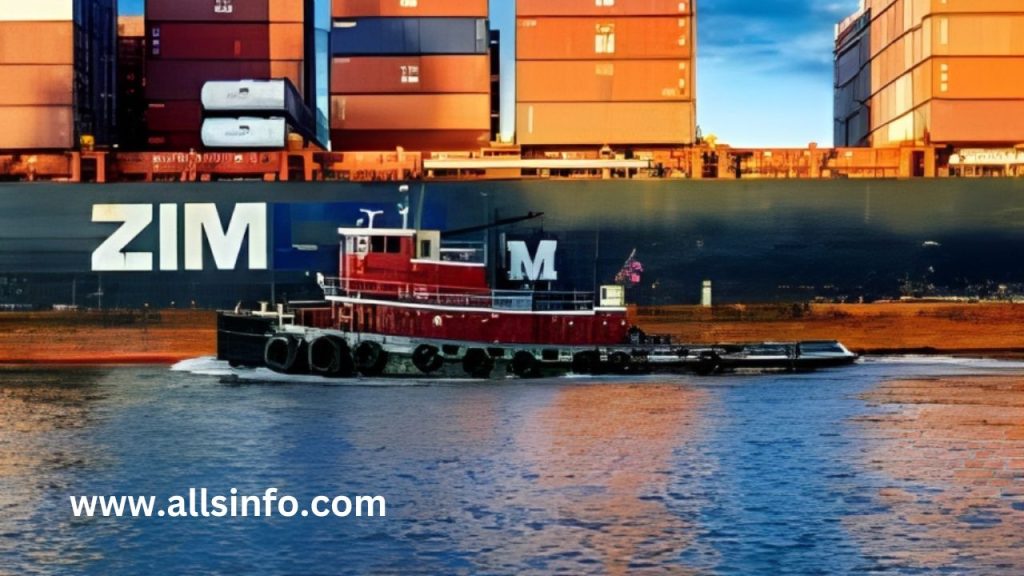Soft Market Forces Zim In the tumultuous waters of the global shipping industry, container lines have long been subjected to the unpredictable ebbs and flows of market demand. The year [Year] proved to be no exception, with the Israeli shipping company, Zim Integrated Shipping Services, being forced to navigate off-course due to a softened market and the pressing need to offload surplus capacity.

As an essential player in the maritime trade, Zim has historically weathered the highs and lows of the shipping industry. However, the past year saw the company grappling with adverse market conditions,
primarily stemming from a softening global economy and ongoing disruptions caused by the pandemic.
The Covid-19 pandemic, which shook the world since [Year], triggered an unprecedented series of events that rippled through international trade. Port closures, reduced consumer spending, and disruptions in global supply chains led to a drop in cargo volumes and increased uncertainties for shipping lines. As economies struggled to find stable ground, the demand for goods dipped, impacting Zim’s cargo volumes and revenue streams.
In response to the prevailing soft market, Zim was confronted with the challenge of handling surplus capacity. During periods of high demand, shipping companies often expand their fleets to accommodate the influx of goods. Unfortunately, Zim’s expansion efforts coincided with the market downturn, leaving the company with excess capacity when demand receded. This surplus capacity translated into higher operating costs, reduced efficiency, and mounting financial pressures.
To regain control of its course, Zim had to implement decisive measures to reduce costs and optimize operations. One of the first steps was to identify and offload surplus capacity. The process of divesting vessels, although necessary, is complex and not without challenges. Negotiating with shipyards, leasing companies, and potential buyers required astute financial planning and risk management. While this strategic move helped Zim cut operational costs, it also meant acknowledging the prevailing softness in the market, signaling to investors and stakeholders the reality of the situation.
also read this : Hepatitis C Prevalence Falls by 45% in England
Soft Market Forces Zim forced off-course and offload surplus capacity
Furthermore, Zim had to rethink its network and routes to align with the shifting trade patterns in the subdued global market. Reevaluating port calls, consolidating services, and improving intermodal connectivity became vital components of the company’s operational overhaul. Such measures aimed to enhance efficiency and reduce redundancies, effectively streamlining operations and optimizing the utilization of remaining capacity.
Navigating off-course, however, also meant exploring alternative revenue streams. In response to the changing dynamics of the shipping industry, Zim ventured into the realm of logistics and supply chain solutions. By leveraging its experience and expertise in shipping,
the company began offering end-to-end logistics services, thereby diversifying its revenue streams and reducing reliance solely on shipping freight rates.
Despite the challenges faced, Zim’s response to the soft market exemplifies the resilience and adaptability that defines successful shipping companies. Recognizing the cyclical nature of the industry,
Zim approached the situation as an opportunity to restructure and fortify itself for the future. In doing so, the company demonstrated a commitment to long-term sustainability,
acknowledging that success in the maritime trade hinges on the ability to navigate turbulent waters with flexibility and strategic acumen.
As the global economy gradually regains its footing, the shipping industry, including Zim, stands poised to capitalize on the recovering demand for goods and services. By employing lessons learned during the soft market period,
Zim is better equipped to calibrate its operations and capacity to the dynamic demands of global trade, ensuring its voyage forward remains steady, even in the face of uncertain tides.

